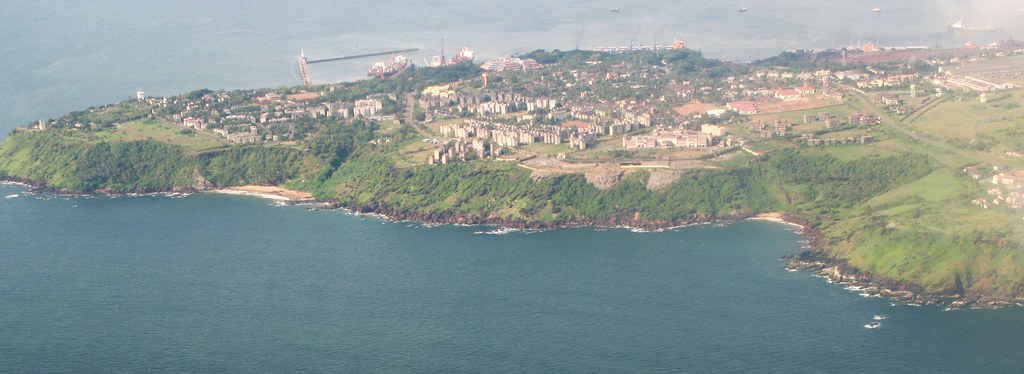 “Quem viu Goa,
excusa de ver Lisboa!” (Who has see Goa need not see Lisbon) goes a
saying that may have emerged and gained popularity in the late sixteenth
century Goa, when the island-city of Goa, what we today call Old Goa, was at
the height of its power. This must have been saying a lot, since at about the
same time Lisbon was a pretty impressive European city itself. The latter city
presided over a truly global trade thanks to the European discovery of America
and grew in size as well as impressive monuments.
“Quem viu Goa,
excusa de ver Lisboa!” (Who has see Goa need not see Lisbon) goes a
saying that may have emerged and gained popularity in the late sixteenth
century Goa, when the island-city of Goa, what we today call Old Goa, was at
the height of its power. This must have been saying a lot, since at about the
same time Lisbon was a pretty impressive European city itself. The latter city
presided over a truly global trade thanks to the European discovery of America
and grew in size as well as impressive monuments.My first proper encounter with Lisbon was when I entered the city
through the railway station of Santa Apolónia. Enthusiastic that I should not miss a thing, and believing that walking is the best way to see things, I decided to walk. Blessed decision, since it gave me my first sense of this déjà vu. Perhaps a little more than a kilometre away from the station I walked into an area called Campo das Cebolas (field of onions). It must have been a field a long long time ago, since today there is no space for any agricultural activity close to one of Lisbon’s many touristic centres, the Praça do Comércio.
What struck me about the Campo was the fact that behind the square that gave its name to the place was a huge governmental building dressed in the yellow that we in Goa today associate with the Police Headquarters and the Institute Menezes Braganza in Panjim. All at once, it was like I had been transported from Lisbon back to Goa, standing in a place where one could look at the Police Headquarters from across what is today called Azad Maidan in front of it. Don’t get me wrong, it is not quite the same view, the building and the square in Lisbon are on a much grander scale, but there is no doubt that both spaces speak a similar language.
 Over time that initial sensation has kept
repeating itself. This sensation is perhaps never as strong when I view the
south bank of the river Tagus from a location in Lisbon. The view on the other
side is of various Goan scenario’s stitched together; the view of Betim and
Reis Magos from Panjim, the view of Vasco from Dona Paula.
Over time that initial sensation has kept
repeating itself. This sensation is perhaps never as strong when I view the
south bank of the river Tagus from a location in Lisbon. The view on the other
side is of various Goan scenario’s stitched together; the view of Betim and
Reis Magos from Panjim, the view of Vasco from Dona Paula. If there is one thing in which Goa (in this case understood to be Panjim, the former Nova Goa) differs from Lisbon, then perhaps it is the relation of the two sides of the river bank to each other. In Lisbon, it is the north bank of the river Tagus that hosts the city; and the south bank, today home to a variety of dormitory towns, tends to be disparaged by Lisbon snobs. In Goa it seems it is the other way around. Panjim is located on the south bank, and even though Ponjecars suffer from an incurable superciliousness, it is a fact that beyond some amount of threatened urban architecture, Panjim has not much to offer. Indeed, if denizens of the city want entertainment, they must perforce travel to the northern bank of the river Mandovi.
Who has seen Goa, need
not see Lisbon went the old saying. However, with the passage of centuries, it
would perhaps be more appropriate for those in Goa to rephrase it: Who has seen
Goa, must indeed see Lisboa! One hopes that those in Lisbon will return the
honour.
(A version of this post was first published in The Goan on 25 Oct 2015)

